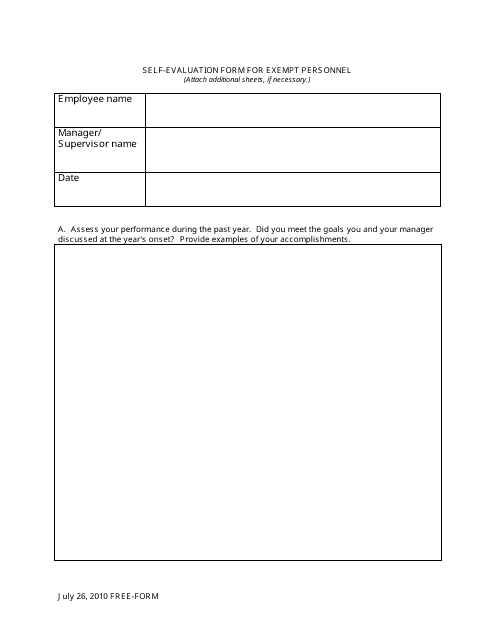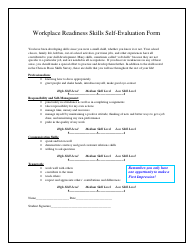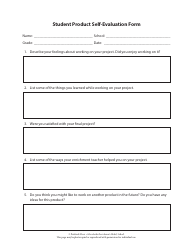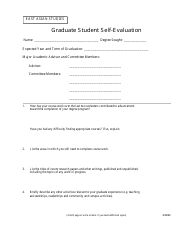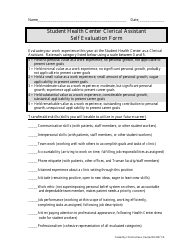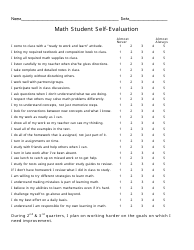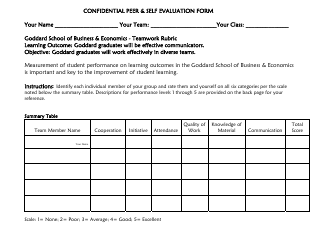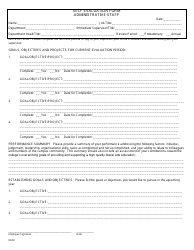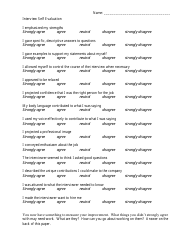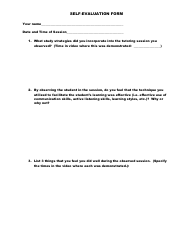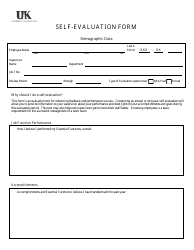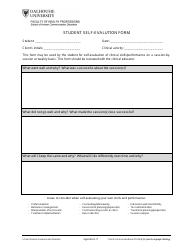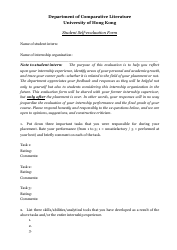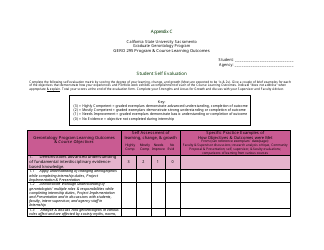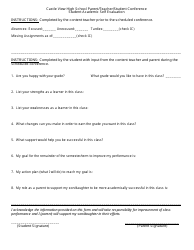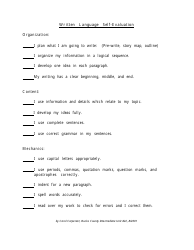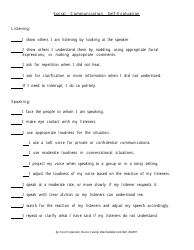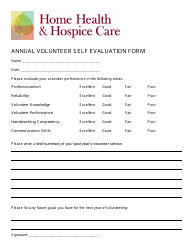Self-evaluation Form for Exempt Personnel
The Self-evaluation Form for Exempt Personnel is used to assess the performance and competence of exempt employees (employees not eligible for overtime pay). It allows employees to reflect on their accomplishments, strengths, areas for improvement, and set goals for professional development.
FAQ
Q: What is a self-evaluation form for exempt personnel?
A: A self-evaluation form for exempt personnel is a tool used to assess an employee's performance and accomplishments.
Q: Who uses a self-evaluation form for exempt personnel?
A: Exempt personnel, who are typically salaried employees not eligible for overtime pay, use this form to evaluate themselves.
Q: Why is a self-evaluation form for exempt personnel important?
A: It allows employees to reflect on their performance, identify strengths and areas for improvement, and provide feedback to their supervisors.
Q: What information is typically included in a self-evaluation form for exempt personnel?
A: This form often includes questions or prompts related to job responsibilities, achievements, goals, strengths, weaknesses, and professional development.
Q: How often should a self-evaluation be completed?
A: The frequency of self-evaluations can vary depending on the organization, but it is often done annually or during performance review cycles.
Q: Who reviews the self-evaluation forms for exempt personnel?
A: Typically, the employee's supervisor or manager is responsible for reviewing and discussing the self-evaluation form with the employee.
Q: What is the purpose of reviewing self-evaluation forms?
A: The purpose is to open a dialogue between the employee and supervisor, assess performance, set goals, and create a development plan for the future.
Q: Can a self-evaluation form impact an employee's compensation?
A: Yes, self-evaluation forms can be used in the performance appraisal process, which can impact an employee's compensation or bonuses.
Q: Are self-evaluation forms mandatory for exempt personnel?
A: The use of self-evaluation forms may vary depending on the organization's policies, but they are commonly used as part of the performance evaluation process.
Q: What should I include in my self-evaluation?
A: Include specific examples of your accomplishments, areas where you exceeded expectations, challenges you faced, and goals for the future.
